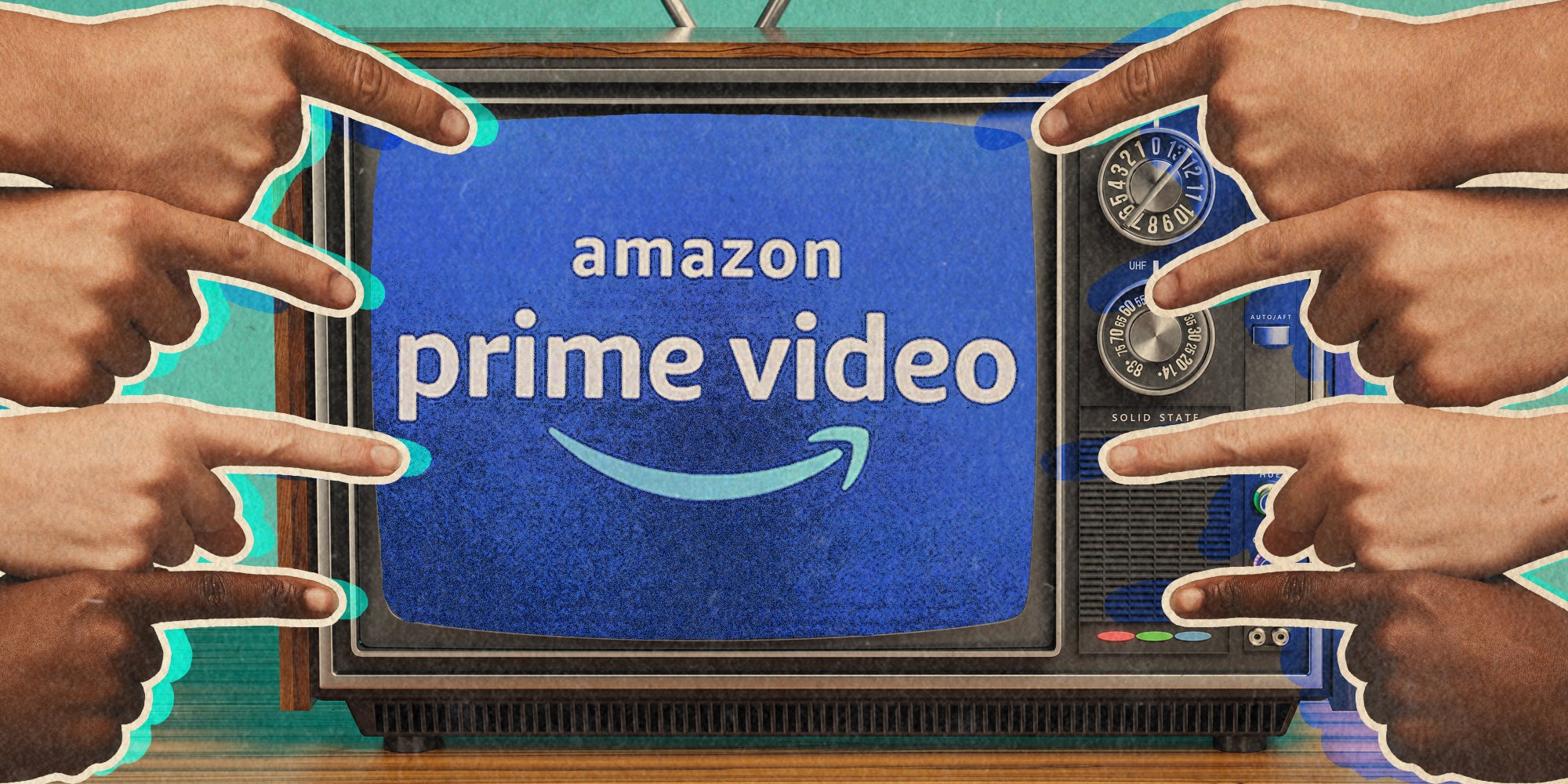CREATOR NEWSLETTER
Issue #208 | February 1, 2024
Two weeks ago, the 30-year-old music news and review site Pitchfork was folded unceremoniously into GQ, gutting its staff. Conde Nast, the parent company of GQ, which acquired the venerated music site in 2015 — had its chief content officer Anna Wintour announce the layoffs during a video call where she refused to remove her sunglasses. Classy.
And yet, unsurprising. In recent weeks we’ve heard about similar minefields going off across the media landscape — Sports Illustrated did away with editorial altogether; the satirical entertainment news site Hard Drive accidentally deleted its own YouTube channel attempting to lock out its former founder after doing the same. The Messenger had an eight-month shelf life before it closed up shop, somehow forgetting to inform any of its staff that they should be looking for a new gig. Nothing seems immune: Forbes, Time Magazine, New York Daily News, Business Insider, the Chicago Tribune, Conde Nast, Vox Media, The Wall Street Journal, and the Los Angeles Times have mowed down entire departments in recent weeks, sparking widespread outcry, walk-out strikes and lawsuits.
This is to say nothing of our fallen comrades at Mel Magazine, Buzzfeed News, Vice, Paste, Gawker/Jezebel 3 and 4.0 (respectively). A record-breaking 20,000 media jobs were lost in 2023. Over 500 journalists were laid off last month alone.
THE COMMENTS SECTION
“everyone i know is getting laid off but the economy is actually doing really well if u look at these 2 lines i drew.”
– X user Jeremy Kaplowitz (@jeremysmiles) on the massive layoffs in the media industry.
It’s a stunning reversal from 2021 and the Great Resignation, when over 47 million Americans left their jobs. God, remember Quiet Quitting? A thing that didn’t really exist but made for a corporate boogeyman to scare companies into treating their employees better? What a time to be alive. Heady with the flush of pandemic-era stimuli, people across all industries were demanding better treatment and wages. We all watched “The Bear” and decided restaurants and fast-food places should pay better because Carmie seemed super stressed!
You’d think now that the economy is on the rebound (thanks Biden,) and we’re looking down the barrel of a historically long election cycle, media companies would be snapping up all the talent they can afford. (And with that new legislation for corporate tax cuts that just passed in the House, they will certainly be able to afford a lot more.) But for anyone working in the news business, or any sort of editorial media, the writing is on the wall. (We’re all very good readers, natch.) The entire industry of the news, it seems, is on its way out the door.
And who’s to blame? According to Tucker Carlson, but also a sad amount of legitimate news agencies, the answer is obvious: Influencers. The rise of the so-called creator economy — along with the explosion of AI, the decline of digital ad sales and hmmm, let’s say workplace TikToks, specifically — are the four horsemen of the news media (and new media) apocalypse. Didn’t you see the headline about Reach replacing its newsroom with influencers? Or the (always a good sign you’re on the right side of history,) New York Post story? First they came for the tech sector, now the creator economonster is coming for the people who write trend pieces.
After all, when you have TikTok brand ambassadors with millions of followers, why would anyone put down money for something as old-school and clunky as paywalled news?
But try thinking about it for more than three seconds and it becomes obvious that putting the blame solely at the feet of emerging technology and new media is a false narrative meant to obfuscate the real culprit: Wall Street and billionaires.
Take a look at the tech sector, which after flying high in 2010s saw itself absolutely gutted last year. Not because the products weren’t good, or because competitors innovated too quickly. No, the issue was private equity: money pumped into new ventures by private investors demanding to see exponential growth in place of sustainable business models. Making unicorns with their valuations, then pushing these companies to go public so they could see a 100x return on their investment. Only when it came time for IPOs did the public learn for the first time how bolstered these brands were by private funds. It’s why seemingly flourishing tech ventures have suddenly gone all sideways.
Nor was it limited to just startups, as we learned from the mess left by Reddit, WeWork, Uber, Etsy, Facebook and Casper. Hedge funds, private equity firms and investment banks — not “creators” — were responsible for the spectacular flameout of some of this century’s biggest tech brands.
Now, news media has been criticized for failing to adapt to the Internet and emerging tech. But at least in one respect, it’s running at par with Silicon Valley: allowing private money to consolidate the industry and absolutely nosedive it straight into the ground. 90% of media in the U.S. is owned by six corporations. If your outlet isn’t owned by a billionaire like Bezos or dynasty families like the Sinclairs, Murdochs, Redstones and Newhouses, chances are your checks are coming from Alden Global Capital, Lee Enterprises, Searchlight Capital Partners or The Vanguard Group. It’s literally a documented fact.
And much like we’ve seen with startups over the past couple years, news is now a for-profit business, meaning that these faceless banking suits want a return on their investments and want it fast. When they don’t immediately see profit, their only solution is mass layoffs, cutting corners using AI, and eventually, shuttering the whole operation. This is the inevitable conclusion to Wall Street’s “Greed is Good” axiom; and if you’re looking for someone to blame for the nail in the coffin of local, national, digital, and print journalism, try following the money. Like most things in the world right now, it’s the consolidation of wealth in the hands of a few that are at fault, rather than some novel once-in-a-millenia fluke caused by the convergence of disruptive forces in the industry.
But that’s a much less sexy answer than a chyron on a Fox News segment about Selfish Influencers.
– Drew Grant, Editorial Director
NOTED BY LON HARRIS
Media Companies Are Discovering What Creators Have Known From the Beginning
While showrunners lament having their content interrupted, it’s the only way to fund content.
By Lon Harris, Passionfruit Contributor

CREATOR SPOTLIGHT

Congrats to our creator spotlight winners this week, Charm City Paranormal!
Charm City Paranormal is a paranormal investigation team based in Baltimore, MD that travels around the United States exploring haunted locations to better understand various aspects of the paranormal while uncovering interesting stories of spirits and entities that dwell within.
From POV/Found Footage style of paranormal videos with cinematic visuals and rich historical background that challenge viewers own thoughts and beliefs, we’re honored to highlight the work of these creators.
Learn more about them and the creator spotlight program here.
IN THE BIZ
- The Senate Judiciary Committee’s recent hearing with tech CEOs focused on online child sexual exploitation, revealing significant tensions between legislators and tech companies over how to protect children on digital platforms.
- Universal Music Group (UMG) has begun removing their music from TikTok, accusing the platform of unfair business practices and expressing concerns over AI’s impact on intellectual property rights. This move could significantly affect TikTok’s content, as UMG represents major artists and owns a third of the world’s music.
- X expanded its job listing features to all Premium subscribers in the U.S., allowing personal profiles and business pages to display job openings.
- TikTok is expanding into live e-commerce by establishing live shopping studio spaces in Los Angeles, inspired by the success of similar ventures by China’s Douyin.
- YouTube removed an ad from PicX, a service offering AI-generated photos of young girls, following public outcry. Initially deemed acceptable by YouTube’s policies, the company reversed its decision after a Twitter user’s complaint about the ad’s inappropriate content garnered significant attention.
- YouTube introduced new Playlist analytics in the Content tab for comparing playlist performance, Content Gap insights in the Research tab for identifying underserved queries, and additional features like highlighting top community clips and scheduling members-only videos, aimed at enhancing creator engagement and content strategy.
LABOR
‘Hazbin Hotel’ Animators Expected a ‘Passion Project’ But Got a Helluva Time
We spoke to a dozen workers about the work culture at the SpindleHorse Toons studio, which works with Amazon and A24.
By Steven Asarch, Passionfruit Contributor
PERSONALITIES
Streamer Imane ‘Pokimane’ Anys Ditches ‘Messy’ Twitch For YouTube
Shockwaves were felt in the streaming community last night as Pokimane announced that she’s leaving Twitch behind.
By Charlotte Colombo, Passionfruit Contributor
WHAT WE’RE WATCHING
- Reelin’ with Asia and BJ watched 1976’s “Rocky” for the first time.
- CineBinge reacted to 2003’s “X2: X-Men United”.
- Mentally Gone Reacts watched 2003’s “The Lord of the Rings: The Return of the King” for the first time.
- Jen Murray reacted to 1986’s “Ferris Bueller’s Day Off”.
YOUTUBE MADE ME DO IT
Chainsaw Reacts gathers together a group of creators every Wednesday to talk about some of the hottest topics in entertainment on Council of Creators, and we loved this week’s episode!

Copyright © 2024 Passionfruit, All rights reserved.
You are receiving this email because you signed up to get the latest tips, tricks,
and trends in the creator economy from Passionfruit.
Have an idea for our next big story or want to get featured? Email us at tips@passionfru.it
Don’t want to hear from us anymore?
Click here to unsubscribe
To view in your browser click here





